Reham El Sebaie
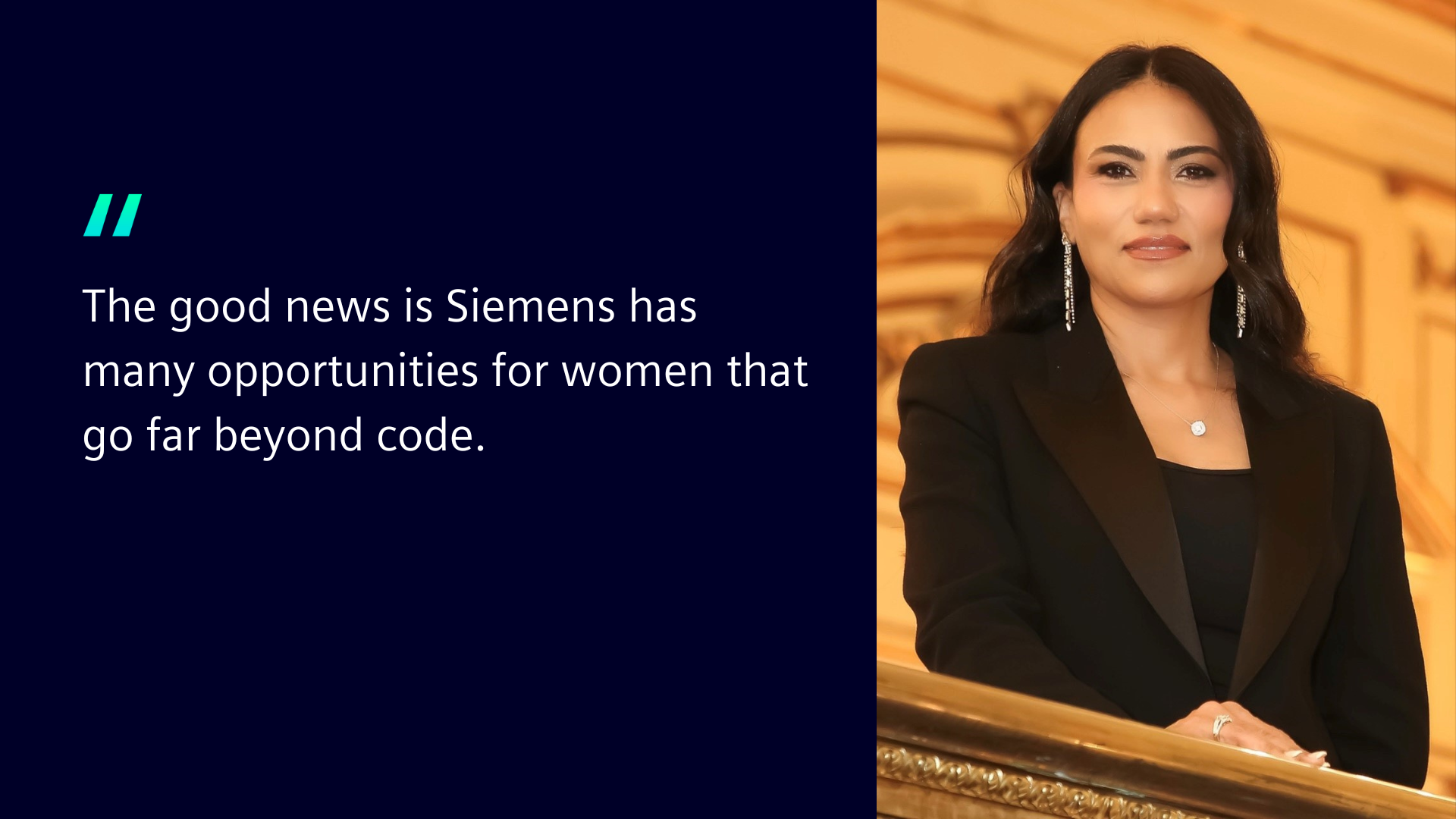
Reham El Sebaie, Director of Strategic Business & Marketing for the Middle East and North Africa (MENA) region in DI SW, is one of several professionals featured in Rising to the Top, a book series of first-person accounts of the lives and careers of women engineering leaders from around the world. The series is published by the International Federation of Engineering Education Societies, an organization with which Siemens collaborates to improve the quality of and access to engineering education as part of a company-wide gender equity commitment.
Reham’s story, shared below in its entirety, is about the impact family and gender can have on one’s career, how to use education to shape your career path and follow your passion, and the importance of mentorship. I had the pleasure of sitting down and chatting with her in preparation for writing this piece, and I am happy to report that she is just as cool in real life as she is on the page.
Based in Cairo, Reham is the definition of carving your own path. She speaks three languages (Arabic, English and French) and holds two master’s degrees and a PhD, all related to business and technology. She has vast knowledge and expertise about technology, AI, and business development, but her educational journey did not begin in the technology space – she has built her technical background on her terms, all while pursuing her career and caring for her family.
These days, Reham is focused on building strong partnerships across Siemens and developing academic programs in the MENA region. Her success has allowed her to expand this program beyond EDA and into other Siemens Business Units, including DI SW (PLM/SST, PLM/LCS), DI FA and SI/Brightly Software. She is passionate about mentorship, creating an educational journey, and understanding new technology.
Reham is a colleague who stands out and I hope that her story finds those who are thinking about continuing their education, those who want a career shift and don’t know where to start, or those who may want to escape the chaos of the day and spend some time reading a great story.
Early days
I was born in Cairo, and I’ve lived here ever since. I’m the middle of three girls, and we all grew up in a loving, strict, traditional family. My father had an architecture and engineering background and had his own business designing interiors of homes and commercial buildings. My mother was an administrative manager at a local high school.
My parents, my father especially, were very supportive regarding education for my sisters and me. There were high expectations for good grades! However, he had specific ideas about which subjects and careers were best for women.
My sisters and I went to an all-girls private French Catholic school for primary and secondary education. In the last year of high school, students chose between various specializations — literature/ language, philosophy, history, and science, which included math, physics, chemistry…what we now call STEM.
My older sister, now a senior administrator at a local university, wanted to choose science, but our father wasn’t supportive. He felt that literature was a better fit. He referred to it as ‘ladies’ education.’
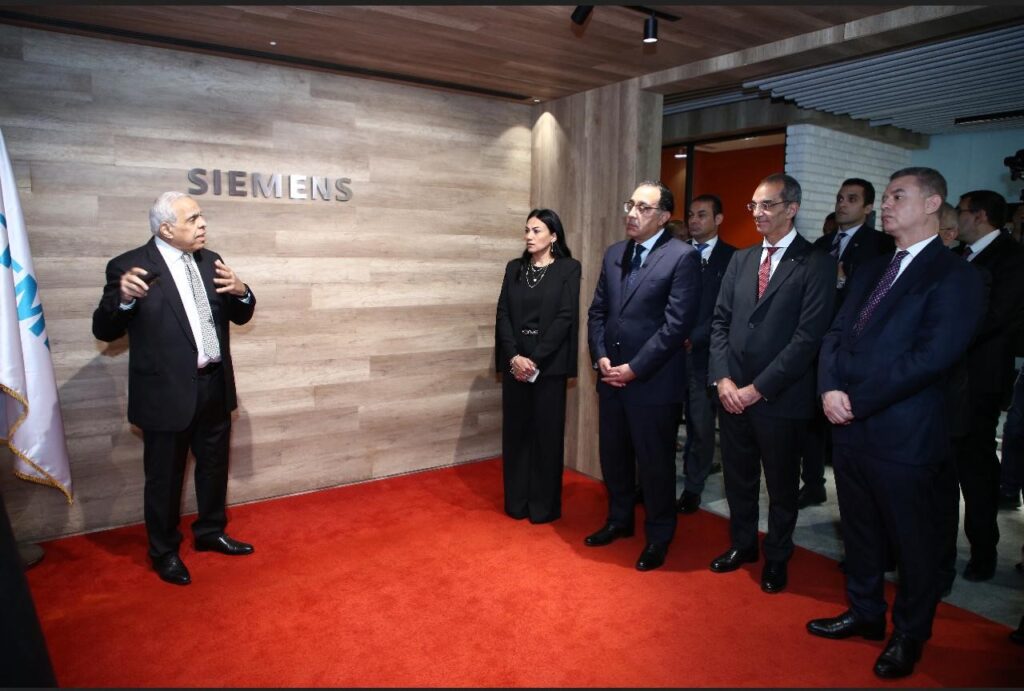
My father was rigid but very caring. He thought many of the STEM fields were too harsh and demanding for women, especially if there was an interest in someday forming families and raising children. So my older sister chose the non-STEM track, and I did too.
We managed to change his mind by the time my little sister came along. He relented and allowed her to choose science. Today, she’s a successful doctor. As for me, I only started my technical education after finishing my university degree.
My father loved and supported us and changed his mind over time for various reasons. For one, he saw that there were challenges everywhere and that non-technical careers weren’t necessarily any easier, so we should just do what we were interested in. Also, we all proved that we were tough and resilient due to his high expectations and the environment in our Catholic school, which was very formal and strict. Every single move at school — how we sat, how we ate, the level and tone of our voices — was under the watchful eye of the sisters.
My early schooling looms large in my life. Throughout its history, it shifted from a religious boarding school to a day school open to non-Christians. Religion wasn’t much part of the curriculum. I was raised and still am a practicing Muslim.
Being in this environment for so long helped me in how I communicate today. I never focus on religion or nationality when meeting and working with others, though I respect differences and beliefs. The school was elite, in many ways the upper crust of girls’ education in Egypt, and my father’s expectations about manners mirrored those of the school. He wanted us to be among the best. Today, especially in high tech, it’s not uncommon to wear sneakers to work, even here in Egypt. My father would never accept that! He believed that a woman’s appearance outside the home in a work environment should be elegant, with a dress, styled hair and nice shoes, heels even. Etiquette mattered.
We were a tight-knit family, and my parents were far and away my biggest influences, the ones whose advice I most listened to.
Loving the ‘black-box’ nature of machines
My father was strict in specific ways but very open in others. He always ensured we had the latest electronics at home, and we had computers early on. It’s clear now that he wanted us to be up to date with what was new in the world.
I had a vague notion of being interested in engineering, but computers and even fax machines really piqued my curiosity. I loved the ‘black box’ nature of them, the mystery. I was 9 or 10 when I first encountered a fax machine. I remember wondering how it was possible to stick a paper in there and have it come out moments later in another country.
Things were different when I switched to more technical pursuits starting in graduate school, which was more like 70/30, men to women, which is still the breakdown in the engineering programs I work with today.
I remember the early days of the internet and the sounds the dial-up modem would make when it was establishing a connection. I remember setting up a Hotmail account and marveling that I could write a note, push send, and know it was delivered right away. I remember icons too — the flower of the ICQ online chat system and the way you could change the virtual assistant from an old man, Shakespeare or Einstein, as it turns out, to a superhero dog or a robot when using Word. This was all exciting and fun for me.
Though I work for a large multinational company, I’m excited about entrepreneurship. My father had his own firm, and I encouraged my husband to create a startup of his own, which is working on mobile and artificial intelligence applications, augmented reality, and data analytics. I’ve been supported in various entrepreneurial pursuits in my job at Siemens and have created a unique program related to training and recruitment in this part of the world. It bridges the gap between academic programs and the needs of the industry, especially when it comes to highly specialized software such as that used in electronic design automation (EDA), which is related to creating computer chips and systems.
Nothing girls cannot do
I’ve dealt with many obstacles, and it’s been challenging to juggle things. It still is! I married young, at age 23, right after finishing my university education. So, I started both my technical journey — I have two master’s degrees and a Ph.D., all related to business and technology — and my married family life at the same time. There was a lot of studying when my children were small, trying to squeeze things in around family responsibilities and doing coursework after they had gone to bed. Time management was everything.
I believe that there is nothing girls cannot do, provided there is passion and willingness to work. I admit being concerned that too many girls seem blase or bored about everything today. This wasn’t the case for my daughter, who is off to study engineering at the American University in Cairo, but it was true for some of her friends. The attitude is, “Why do I need university or high school? I can find whatever knowledge I might be looking for on the internet right now.” Some don’t seem interested in work or even being out in the world. They think they can just order what they need for delivery and hire a service to clean their house! Why learn to cook or clean even?
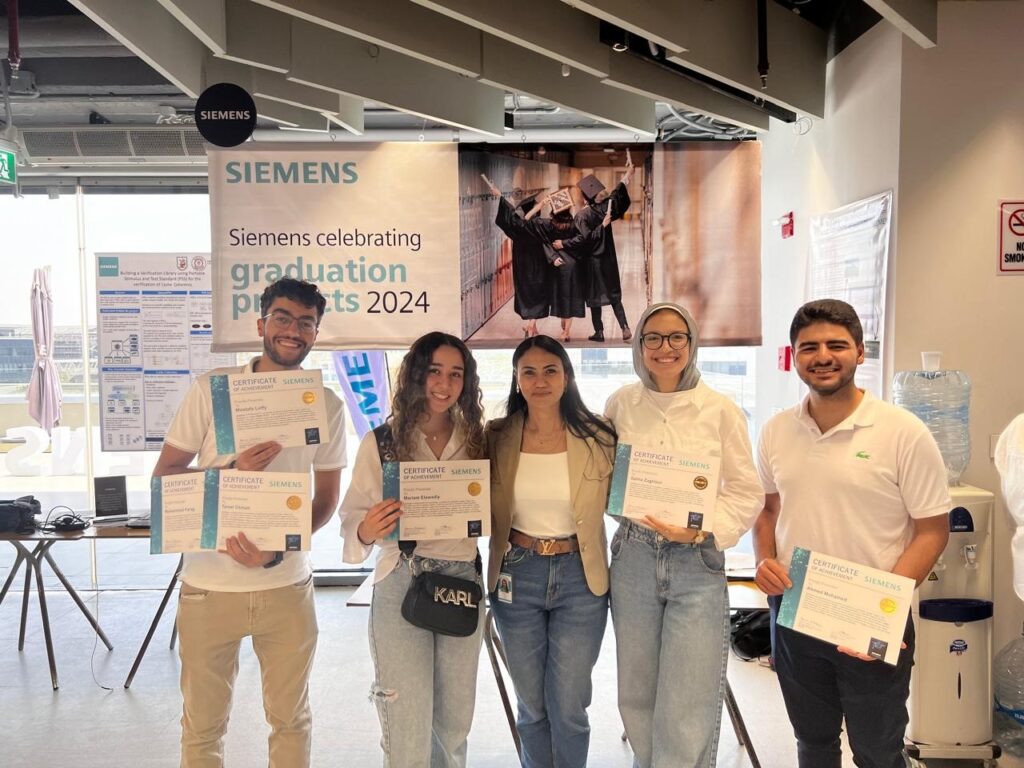
All these conveniences can go too far. We need to use technology for positive purposes. Cultural expectations mix with all these conveniences in unfortunate ways. There is still the strong expectation that men will work and provide for their families, so I think some girls have just gotten lazy rather than energized by all the new opportunities.
One of my messages is that having a supportive spouse is hugely important. I’m lucky because my husband has always been supportive. My graduate degrees are from universities in the U.K. and France, and while I did some of my coursework online, there was also some travel and time spent studying and working on my dissertation. A lot of this was when my children were relatively young, so I needed his support.
On the benefits of notetaking
Another lesson is that learning never stops. I started in my role here 15 years ago. Our focus then was the highly technical realm of EDA, and it took me a whole year to understand its full breadth. Yet EDA is only part of the Siemens Xcelerator offering. Our software cuts across technical domains and market verticals, so I continue to learn as much as possible using any resource I can.
The quarterly and annual sales and business review meetings are essential. I attend with the country manager and always take copious notes. Afterward, I download all the presentations and read through all the material again, paying specific attention to words and concepts I don’t know. Always look these things up!
The rigor and notetaking of my earlier education help me in these contexts. I’m an Arabic speaker, but my early education was in French, and my university degree is in French civilization and literature. So, I was always looking up unfamiliar words and concepts.
Remember, I was in an all-girls environment through high school, and because of my undergraduate focus, women outnumbered men in my university studies, which was probably around a 60/40 split between women and men. Things were different when I switched to more technical pursuits starting in graduate school, which was more like 70/30, men to women, which is still the breakdown in the engineering programs I work with today.
It’s important to say that this overrepresentation of men here in Egypt doesn’t seem to be because of explicit or implicit discrimination. Instead, it’s mostly about student choice. I remember being shocked when I took a course in cross-cultural communication to learn that sometimes, in Europe and the U.S., women are paid less to do the same jobs. And the glass ceiling is an idea that just doesn’t translate here. Egypt is a socially conservative nation, for sure, and women do encounter individuals with prejudices. However, in general, there is much support for women in the workplace, including in the law.

My experience has been primarily positive, though I’ve been treated differently or singled out at various times. Instruction for my graduate degree from the University of Sheffield was in English, and in discussions, I sometimes stumbled and could only think of specific words in Arabic or French. As a result, my classmates, mostly native English speakers, didn’t always make a place for me in group projects. Then there was the issue of being a relatively young woman mentioning life at home with a baby while dealing with young single men who really couldn’t relate.
It was a shock to be in a more open world with men, beginning at university and even at the start of my career. There was ‘boy talk,’ as most women have experienced. Worse was when my male classmates would speak in English in front of me about inappropriate things and invariably say, “Don’t worry…she won’t understand.” And they were right…I mostly didn’t understand!
In hindsight, it’s clear that some of my challenges in working with men just had to do with me and my early experiences. Today I go slow, take time to figure things out and adapt and then open up, whether working with men or women.
I’ve been supported in various entrepreneurial pursuits in my job at Siemens and have created a unique program related to training and recruitment in this part of the world.
I trust my instincts. There are people with whom I stay quite formal and distant or avoid altogether. However, even with those I know and trust, I always strive to remain very professional and within limits regarding how I behave and what I expect. Don’t exceed limits.
Early in my career, I also worked for an Egyptian civil engineering company that focused on project management. It was very male-dominated, I think around 60 men and three women. The women were treated as just helpers and assistants.
I was in the training department and didn’t like how the courses were presented. Trainers would stand in front of a class, read text, and distribute paper copies of the material. I went to a director and suggested that we create presentations that were more compelling and concise and that we could use PowerPoint, images, and animation. He agreed and then said, “So, it sounds like you want to make an extra effort. I’m doing my MBA. Here are some of my assignments. Will you please do them for me?”
It was inappropriate to ask, but I did the assignments for him. Throughout my life, I’ve always loved to learn. And it got me thinking about doing my MBA, so there was a silver lining. I saw I could do the work and so said, “Why don’t I just do one of these myself?”
It was a horrible environment at the company. When I was pregnant with my daughter, my boss asked me to stay late to work on a project. Later, he found me in tears and asked what was wrong. I told him it was 10 p.m. and my feet hurt because I was pregnant. He said: “This is why we don’t hire women.” Then he asked an office boy to bring over a trash can, flip it upside down and stick it in front of my chair. “Put your feet up there,” he said.
I wasn’t driving because of my feet, and my husband was out of town, so my dad came to get me. He was so mad…remember he wanted to protect us from these environments. He wanted me to be respected. He said, “You speak three languages! You could work as a translator at an embassy and be around elites! Why are you in a rough environment like that?”
The whole experience almost killed my interest in engineering. However, I never ceased being curious about computing.
Speaking up in class
It’s not always men doing something problematic against women. Sometimes, women uphold norms that might be at least a bit discriminatory. I did a thesis in business school on IoT’s impact on business leadership. I wound up in a debate with a female professor. We were reading a particular author, a man, who made the case that leadership can be taught and that leaders can be created. I disagreed and felt that while probably anyone could manage in some capacity, at least a small team, certain people, just based on temperament or personality, could never lead complex, large organizations, no matter the training.
At one point, the professor said, “Who are you to know more than this author? And besides, you don’t have the skills to create or test a theory.” The author, of course, was male. He had a well-known leadership theory. I was adamant. I said, “Look, we’re not debating the Bible here. This is just a marketing book that describes a theory, and yes, I do know how to create theories or hypotheses. It’s just a matter of methodology, definitions, research — all of which I’m familiar with from my time in market research.”
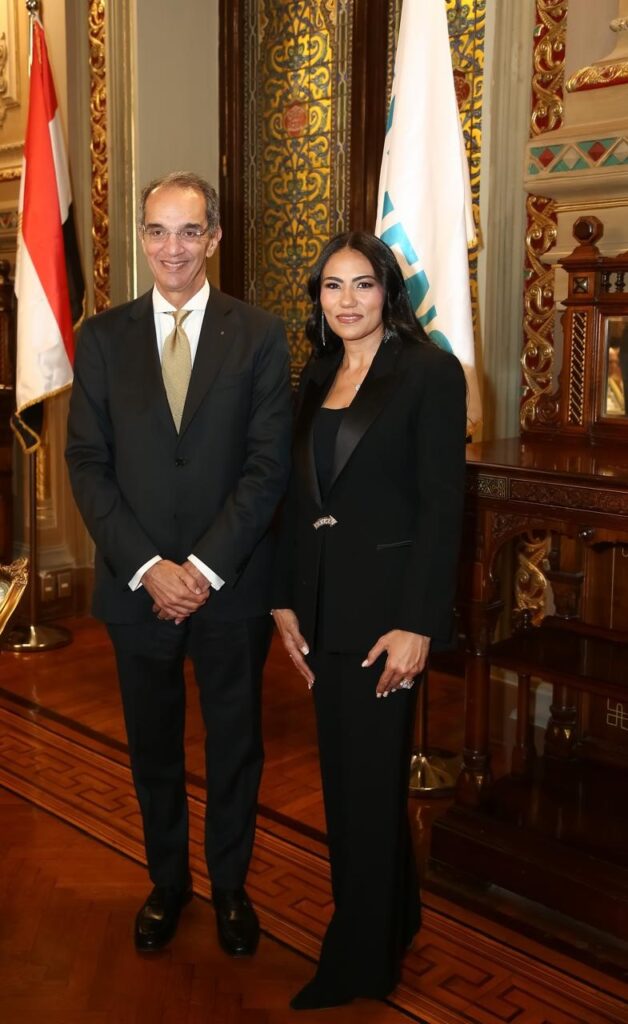
One of my classmates, a man, later turned to me and said, “Oh, now you’re in trouble…you shouldn’t challenge our professor so much…your grade might suffer.”
My grade turned out to be fine, and the funny thing was that later, the same professor presented ideas from another writer about the importance of genes and latent characteristics as a starting point. This author held that specific environments could certainly draw leadership out of people, but not if they don’t have some essential attributes and wiring. That same classmate raised his eyebrows and said, “Isn’t this what you were saying before?”
Differences are real
Talking about differences is fraught, but it’s also common sense. Any parent knows differences between children are real. My daughter is relatively quiet, studious and responsible. My son, her younger brother, is also a good student but is much more outgoing and likes to play and be with his friends. When he was nine, one of his teachers called and said, “We have a problem with your son.” The teacher said that because my son was charismatic and often spoke up, the other kids followed him, making it challenging to control the class, particularly if they were following him in being rambunctious.
I said, “It sounds like you have a leader. Use him like one.”
My son has done well in school with teachers who have delegated specific classroom duties and have relied on him. He has had a harder time with teachers who want him to stay in his chair, remain quiet, and follow the rules.
And his personality was apparent from an early age. He started playing football (soccer) when he was three years old, and I remember one early game when he cried and asked to be put in as goalkeeper, a high-stakes position. That’s become his full-time spot on the pitch. He takes responsibility for his team and is distraught when they lose. So, I think it’s clear that leaders can be born, though, of course, they need training and support to make the most out of their personalities.
Empowering future engineers in MENA
I feel fortunate to have been able to create an exciting role at Siemens Digital Industries Software. I’m responsible for all marketing, communications and PR for the Middle East and North Africa. I manage all the academic relationships for an even larger region that also includes Israel, South Africa and Turkey. We are primarily an R&D center in Egypt, so I am the interface with leadership across global product groups. I ensure that our engineers appropriately support multiple development goals and release schedules.
A big part of the job is anticipating hiring and talent acquisition needs. Before the pandemic, I’d travel for business reviews with senior management and listen closely to hear the challenges in finding skilled technical talent. I would always follow up with the executives after the presentations to get more information. In many ways, our product here in Egypt is the technical development talent, and I want to make sure we have a product-market fit!
Several big multinational tech companies, some of which are our customers, have operations here, so there are strategic issues to juggle. That is, we do not want to poach talent from an important customer, but we want to meet our own needs. One way around this is to form strategic partnerships and work together on academic outreach — we have done this, particularly in integrated circuit verification.
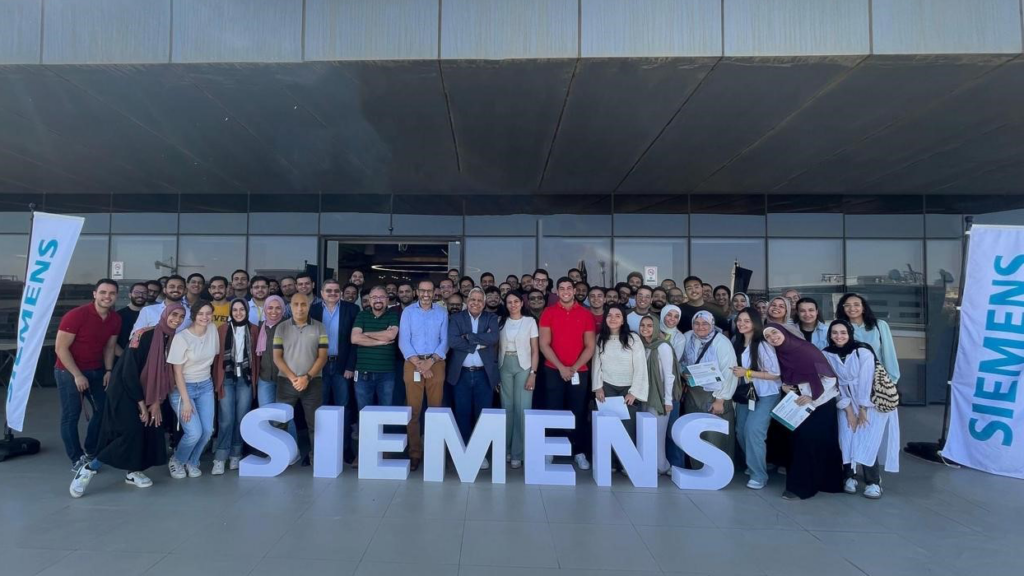
We are gender-blind in our technical recruiting efforts, and our male/female ratio, about 70/30, mirrors the proportions in the academic programs from which we recruit. The message is, “We find the creme de la creme.” Again, women fare surprisingly well here, and when I have seen problematic situations, I have addressed them subtly. I was working with one professor, and I noted that he insisted that male and female students be segregated in their seating. I stopped working with him for a while. When I checked in with him later and saw that he had scrapped his approach to separating his students, we started providing training material again, though I did get involved in selecting students for the course to be sure girls were well represented.
I do see some differences here across domains, differences that I think are apparent around the world. In general, there are fewer women in equipment-intensive fields like mechanical engineering and mechatronics. Women are far better represented in computer engineering, computer science, communication and networking. And even those women I come across in mechanical engineering are more interested in factory automation, programming/digitalization, and not directly working on the machines. The good news is Siemens has many opportunities for women that go far beyond code.
I have made concerted efforts to promote women in STEM, including among younger students. I arranged a program here that brought in women with technical backgrounds from various institutions, including NASA, Microsoft, Yahoo and other tech companies. It is an indication that Egypt is a tech hub that so many big tech firms have operations here. We held various events at schools, primarily for teenage girls. The idea was to put them on track to choose a STEM education. In Egypt, students begin specialization even in high school.
I believe that there is nothing girls cannot do, provided there is passion and willingness to work.
Things are different and better as part of Siemens, with an explicitly stated goal to promote women into senior positions, and already a handful of women are at the company’s top ranks, including on the managing board. Efforts to promote women remain a work in progress, and women must step up. I’ve attended meetings about various initiatives and have often wound up in conversations about childcare, including the availability of lactation rooms. This is important for sure, but so is developing leadership skills, learning to manage your manager and your career, becoming a more effective communicator, including how to deliver tough feedback, and learning to negotiate a promotion.
I’ll continue to do my part. I’m writing this at the mid-point of 2022, and so far, I’ve arranged for the training of around 1000 university students here in Egypt, and every year, this number continues to go up. Women aren’t the only ones to complain about discrimination. I recently posted information on training in an electrical engineering topic on social media. One of the commenters complained that he felt discriminated against, given his interest in computer science! As an aside, the plunging number of EE grads relative to their peers in computer science is a big topic, particularly in chip design.
Family, work and purpose
I’m incredibly proud of my daughter who has been serious about STEM for a long time now. When she was 14, she did an internship in a department led by quite a competent woman; her immediate supervisor was a man. My daughter worked on an A.I. image recognition project that could notify parents by cell phone when a toddler was near an electrical socket.
Navigating the choice of higher education is challenging here, as I know it is elsewhere. My daughter applied and got into several universities. I told her it was her choice. I’m honored she chose to stay in Egypt.
Balancing everything remains a challenge even now that my kids are older. And though I’ve done my best to treat them the same, there are differences. My husband is tough on my son, less so on my daughter. There are, in fact, expectations about what it means to grow up as a man. I eventually stopped going to soccer games because I’d worry too much, especially when he’d sometimes get hurt or come up from a scrum with blood on his uniform. My daughter rode horses seriously, so I’d go to her events while my husband attended the soccer games. Like in many families, my husband and I play different roles for our kids. My son still comes to me to talk and share secrets. My husband asks, “Why doesn’t he share with me?”
The answer is that maternal instinct and concern exist. I treat all the students who come through our sponsored training, men and women, the same — the only special treatment is that I treat them all like my own kids!
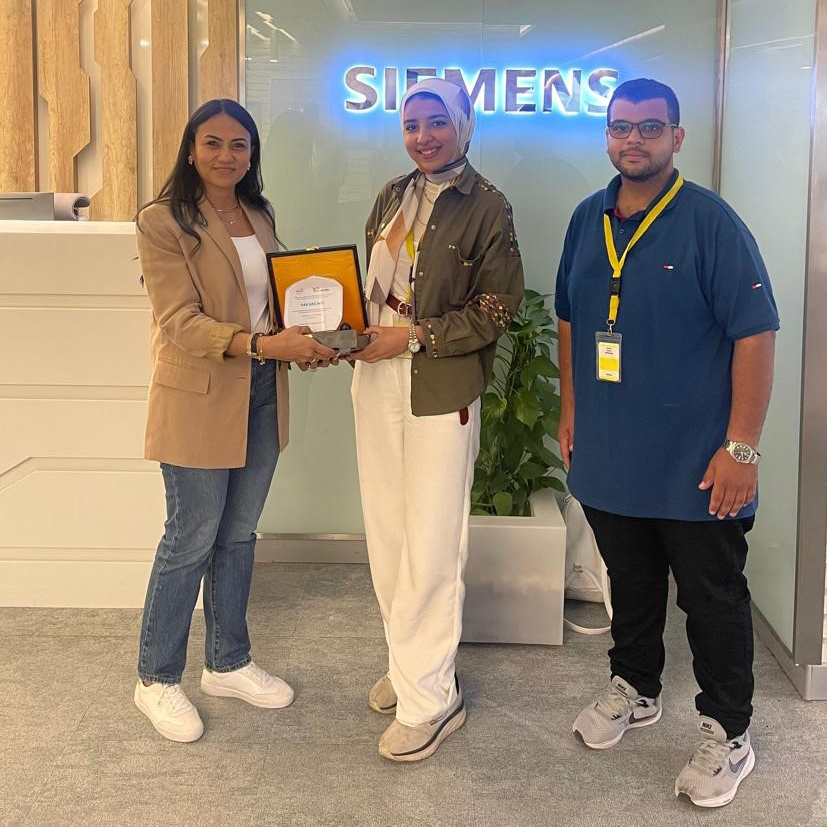
I have encouraged and sometimes even pushed my daughter into STEM, especially computing, though she does like it. It’s clear now that computing, software, and apps are applicable in all fields. As a capstone to her French baccalaureate high school curriculum, she built two apps — one related to smartwatches and notifying caregivers about the specific needs of patients and one related to the smart home.
I’m not worried about her ability to juggle a career and a family. She saw me do it, and she is competent and determined. Having a supportive spouse is critical. My husband has his own business, and there are advantages to being the boss. Even before the pandemic, he had flexibility and could sometimes more easily stay home to help with the kids than I could.
Every family divides things up differently. My husband doesn’t cook, not even eggs, so I make all the meals. And we’d rather spend our extra money on our kids, so we don’t pay for housecleaning, most of which I do. The days are tiring, and I often wonder if I’ll have the energy to finish all that needs to be done.
Work and purpose are essential, and I’d never give up on my career. Ultimately, it’s nourishing to have a job, and I’ve seen many people, primarily women, who seem to age prematurely when they give up on the workplace to focus on being at home, though that’s an honorable choice. And STEM is relevant for these stay-at-home women, too, as they will likely be overseeing their children’s education.
I firmly believe that workplaces benefit from having a mix of men and women. Our minds work differently, with men generally focusing on one thing at a time and women being more synthetic thinkers who never stop scanning the environment, connecting the dots.
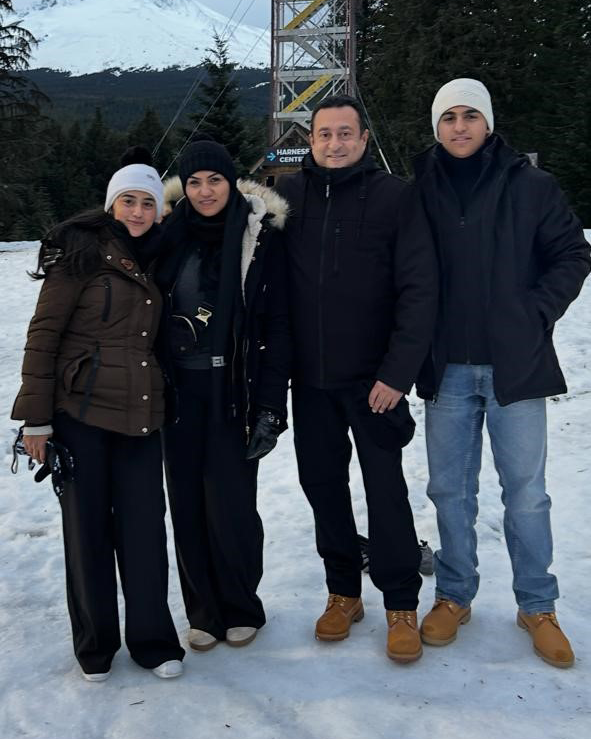
I remember one of the last senior business review meetings at Mentor Graphics before the Siemens acquisition announcement. During breaks and at lunch, I noticed the Mentor CEO, president, head of H.R., and other senior people huddled together in very earnest, serious conversations. I told my boss, the country manager, “You know, I think Mentor is being sold.” He was incredulous and said, “What are you talking about? Are you stupid?” He said this in a good-natured way but was still incredulous. He’s been very supportive, and I consider him like a father.
After the review, we went our separate ways — my boss traveling to Canada while I went back to Cairo. My boss called at a stop en route home and said, “Well, the news is out on Reuters… you were right!” Now every time we see things differently, I say, “Remember the acquisition…you should listen to me!’ Women’s intuition is real, and there is much that men don’t notice.
I’m hopeful for women and for our world in general, despite everything. Certainly, there is evidence of a backlash against progress everywhere, including in Egypt. But here, in our national government, I observe a healthy mix of men and women in leadership positions, including among cabinet officials, and there is loud pushback any time gains made by women are threatened. At Siemens, much attention is being paid to promoting women.
The role of families and a parent’s love is enormous. Our current country manager/CEO is a big supporter of women and is the father of two girls, and the two facts are not unrelated. Whether raising girls or growing up with sisters, many men have had the experience of wanting the absolute best for a girl they love.
And no one would be here if not for their mother.
As told to Geoff Koch. Note: A version of this piece will appear in Vol. 5 of Rising to the Top, a book series featuring global women engineering leaders, by published by the International Federation of Engineering Education Societies (IFEES) and the Global Engineering Deans Council (GEDC). More information is available here.


